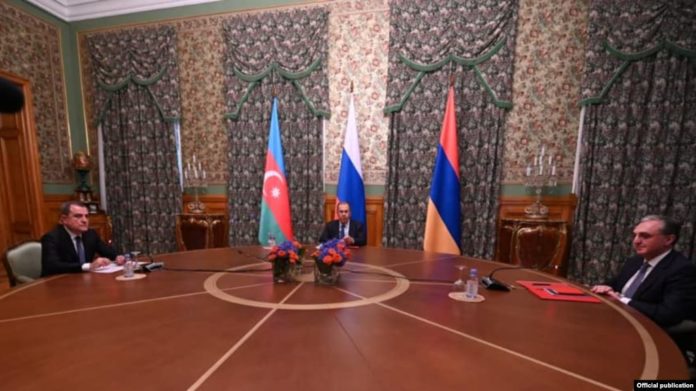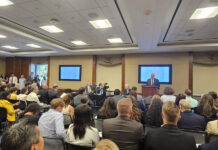MOSCOW (RFE/RL) – Russian Foreign Minister Sergei Lavrov said on October 10 that Azerbaijan and Armenia have agree to a cease-fire from noon on October 10 and “substantive” peace talks aimed at ending the latest bout of fighting over Nagorno-Karabakh.
The announcement came early on October 10 after 12 hours of talks in Moscow between the Russian foreign minister and the foreign ministers of Armenia and Azerbaijan.
Lavrov said the cease-fire would allow for the exchange of prisoners and the bodies of people who have been killed in clashes over the last two weeks in and around Nagorno-Karabakh.
The International Committee of the Red Cross will be an intermediary in the talks, he said. The sides said the talks would be “substantive negotiations with the aim of reaching a peaceful settlement as soon as possible.”
As the foreign ministers began their session on October 9, Azerbaijani President Ilham Aliyev said he was giving Armenia a “last chance” to resolve the conflict peacefully.
“The conflict is now being settled by military means and political means will come next,” he warned, saying nearly three decades of international talks “haven’t yielded an inch of progress, we haven’t been given back an inch of the occupied lands.”








